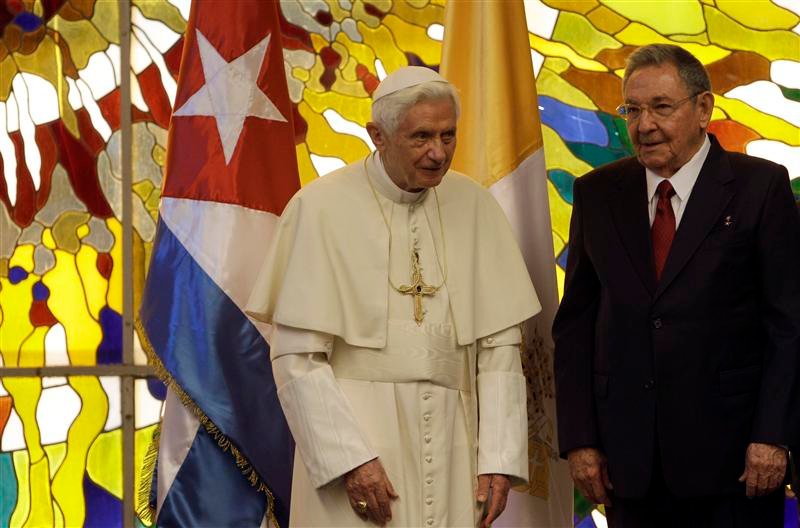The future for Cuba
 Important though it was to Mexican Catholics, Pope Benedict’s first visit to a Central American country was remarkable mainly for the stamina the 84-year-old pontiff displayed after a long and tiring journey. He made one remark that raised eyebrows, saying it was not right that the laity “should feel treated as if they hardly count in the Church”, and calling for an end to “sterile divisions, criticism and unhealthy mistrust”.
Important though it was to Mexican Catholics, Pope Benedict’s first visit to a Central American country was remarkable mainly for the stamina the 84-year-old pontiff displayed after a long and tiring journey. He made one remark that raised eyebrows, saying it was not right that the laity “should feel treated as if they hardly count in the Church”, and calling for an end to “sterile divisions, criticism and unhealthy mistrust”.
His visit to Cuba, on the other hand, had the potential to make history. Cuba is at a turning point, the old – in every sense – Castro regime manifestly cannot continue much longer, and reform is in the air. China has taken over from the former Soviet Union as the most important foreign influence, yet Cuba has not yet followed China in opening up its economy to outside investors and market forces.
While it remains a backwater, almost an ideological fossil, it is slowly moving towards the recognition of the right to hold private property, a change likely to help economic development. The Pope prayed that the country should “advance along the ways of renewal and hope, for the greater good of all Cubans”. One octogenarian president having been replaced by another, a new generation of leadership – the best prospect for renewal and hope – cannot be long postponed.
The Pope was careful not to be overtly political. But his pleas for the Catholic Church to have greater freedom to make a contribution to Cuban life really meant an end to the repression of dissent of all kinds, for it was in effect a call for the opening up of civil society, free of government or party control. The Pope did not meet dissidents, and in any event many of them had been rounded up before his visit. Cuba’s human-rights record is poor – on a par, paradoxically, with the worst of the right-wing dictators whose era in Latin American history has gone.
If a reconciliation could be brought about between Cuba and the United States, one of the principal threats to its stability would be ended and so would any grounds for regarding political opposition as subversive. It is not to President Barack Obama’s credit that the United States embargo on trade with Cuba is approaching its 40th year in operation. Europe and Latin America have long since welcomed Cuba back into the international community. The embargo, only slightly modified to allow limited American tourism, increases Cuba’s isolation precisely at a time when it needs reducing.
The Catholic Church is not without influence in Washington, and it would be advancing the cause of hope and renewal in Cuba if it pressed for the end to this unjust embargo. If the President had to pay a political price in Florida, where tens of thousands of anti-Castro Cuban exiles still exert their influence, he may well gain favour among the large and growing Hispanic population elsewhere in the United States.
The Catholic Church in Cuba has many problems which state restrictions exacerbate, chief among them the need for a pastoral response to the rise of syncretism – elements of Catholicism blended with pagan religion – and the growth of Pentecostalism. It needs freedom of manoeuvre, for instance in education. But so does the rest of the population. What is good for the Church would undoubtedly be good for the whole country.


 Votes : 0
Votes : 0









